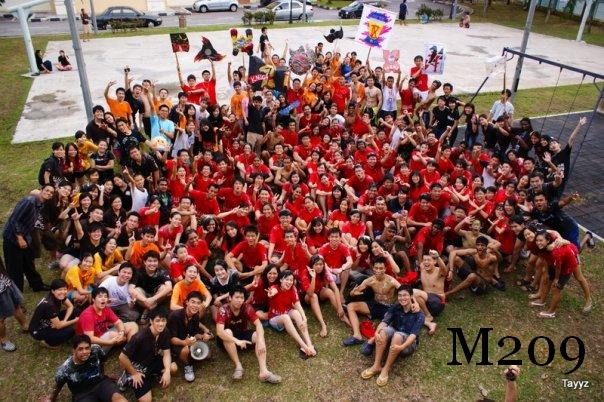Here is a very brief summary of what was discussed during the Doctors of Tomorrow Forum as requested by students. We are trying to get the video uploaded on the I Drive and on CDs for students who were unable to go to view it.
It was really quite an enlightening forum. Each speaker was given 5 minutes to speak and below are my personal notes from the forum.
From Prof Victor Lim: Just a note of caution. Many are expressing their own personal views so don't take everything as the gospel truth. The important thing is to reflect on what has been said and to focus on how to become a good health care professional of tomorrow. Do not be too concerned about the statistics quoted. A good doctor will always be in demand globally.
Speaker: Ms. Ranjit Kaur a/p Pritam Singh, Patients' Representative
- Enabling environment
- When with the doctor the patient should be able to speak openly and feel safe to express feelings and ask any questions without being made feel stupid.
- Patients should not be judged by doctors nor should the doctor ever say "Am I the doctor or you?"
- Communication skills are important:
- Body language
- give support
- speaking abilities
- Breaking bad news
- Most doctors need immense training in this
- They need to be able to give the patient proper information and support
- Enable patient to have a voice
- Give the patients choices
- Doctors shouldn't be afraid to say "I'm not too sure about this, let me refer you to..."
- Conspiracy of silence
- Doctors should not keep a patients condition from the patient just because the family member requested for it.
- Doctors should realize that when this is requested for, the family member is in need of counseling and support as well.
- Doctors communication
- Doctors should have better communication with other doctors, especially in front of patients.
Speaker: Dr. Milton Lum Siew Wah, Malaysian Medical Council Representative
- Training of Doctors
- Current criteria for entry (academics and extracurricular activities) is very important but not enough. IMU also needs to do more than just interview to select students.
- Improving quality of staff is vital in any university.
- For housemen there should be objective assessment.
- What has gone wrong with the medical profession?
- Doctors are perceived (and often act) arrogant.
- Professionalism + good practitioner + life long learner = Doctor
- Professionalism is a set of values, behaviour and relationship.
Speaker: Dato' Dr. Ronald Stephen McCoy, Malaysian Medical Association
- Professionalism + Medical Ethics
- Western Medicine has two types of education:
- Overt -> the factual education.
- Covert -> education from the high expectation from society.
- "Medication is a vocation distinguished by altruism and social responsibility."
- Challenges
- Educational challenges that begin from secondary school itself (government schools).
- Ensuring a culture of excellence (high standards).
- "Apart from knowledge, professionalism, ethics and compassion transforms a doctor into a healer."
- Qualities of a Doctor
- Capable of taking ultimate responsibility
- Non-judgemental
- Empathy
- Integrity
- Advocacy
- Doctors often forget that there are other causes of death apart from disease and illness.
- For eg. war casualties often ignored by medical profession.
- Within our vocation to voice out against it.
Speaker: Dr. Ian Ong Chye Heng, Academy of Family Physician, Malaysia
- Community medicine
- Community family care is what most doctors will end up practicing.
- Attributes of a good doctor
- Attitude
- towards what your patient wants is very important
- Sometimes patients wish to be well but take very little action, therefore we have to convince them
- Dynamic Intelligence
- We have to be highly adaptable
- Application and analysis
- Apply knowledge
- Analyse information presented
- both to be done at patients level
- Atmosphere
- of learning environment
- Chronic illness is extremely prevalent regardless of specialisation
- students need to know it well and keep themselves constantly updated
- Foundation
- A good foundation is required for doctors to know how proceed when presented with rare/unknown/unfamiliar conditions
- Skills
- Good examination skills are of extreme importance
- Foundation skills allow doctors to process the knowledge
- Practice management
Speaker: Prof Dato' Dr. Khalid Kadir, Past Master of Academy of Medicine, Malaysia
- Future
- Produce doctors of high standards so that patients will develop high confidence in them.
- Patients
- are receiving treatment from the entire health care system, not doctors alone.
- cater to patients need to know what doctors know.
- Teaching
- adapt teaching to the new technology without letting go of soft and important skills like proper Physical Examination.
- remove redundant skills which are known to be not so efficient.
- Evidence Based Medicine
- is a must
- teaches how to assess knowledge and how what is learned is applicable
- Monash has one whole semester on it
- Teachers
- have teachers who are trained to teach undergraduates - not postgraduates (as is often the case)
- These teachers should have experience in private practices as well
- best to have teachers who are still practicing
Speaker: Dr. Ng Char Hong, IMU Alumni Representative
- System-based teaching in IMU
- is good because anatomy, physiology and biotechnology can be applied to appropriate illnesses and diseases
- Concrete foundation is needed
- Aberdeen (where the speaker transferred to for PMS)
- Sessions with patient interaction are videotaped and then evaluated as a group
- In Phase 4
- there are no exams apart from OSCE
- Students are solely attached to wards
- Therefore when students graduate they have good communication skills
- Soft Skills
- Knowledge can be built on bu soft skills need to be acquired primarily
Zia Shah

0 comments:
Post a Comment